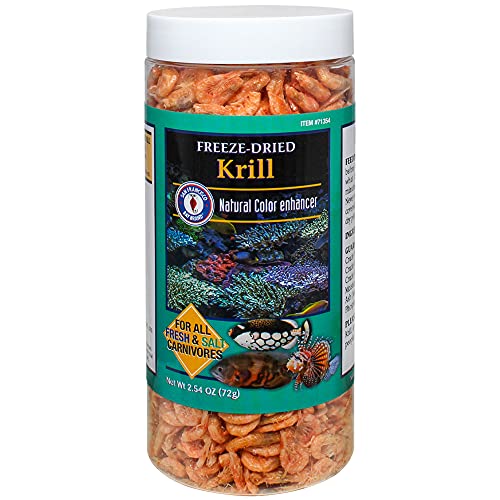ldrhawke said:
The fact is after you've boiled the rock and set in the dark for months so it is nearly algae free, what makes your think you've solved the problem and you won't need to do it all over again 6 months or a year down the road.
I don't know that it won't be a problem 6 months or a year from now...I can tell you that since alot of the rock has been removed from the system, I have had an explosion of corraline algae on the rock that is in the tank right now.
ldrhawke said:
Instead of boiling your rock, figure out how to reduce nutrient input and increase the removal of nitrates and phosphates, or both, to get the system in balance. Improve circulation. Improve filtration. You may need to use a phosphate remover it to get things back in balance or counter the excess you are adding with the food. Get a better skimmer. Reduce feeding. Reduce fish population. Check what you are feeding for excess phosphates. Add a few more critters than eat algae; Etc, etc, etc.
I've been through all of the steps to combat algae and reduce nutrients. I've tried it all...narrowing down sources. The only source was the heavily ladened spongey uncured rock. I barely feed my tank, and don't have a lot in the way of inputs, my fish load is small, husbandry good (blasting off live rock, siphoning detritus, siphoning up the sump, etc etc etc), as I'm very aware of these causing problems. Phosphates (even tested with the fancy Deltec kit) and nitrates have always been zero (I understand the algae using this will give a false negative), but I also tested pore water samples from the rock, and still negative. Circulation is crazy in my system...an Amp 3000 coming out of 4 outputs then switching via MBV to another 4 outputs every 5-7 minutes, combined with a sea swirl....all on a 120 gallon. Big skimmer on my system (EuroReef CS8-3), and tried a plethora of algae eating critters and nothing was helping. My long spined urchin had a body (
not counting the spines) the size of a baseball

, so you can imagine how long the spines were on it, and it made a dent in the algae, however, a very small dent.
I appreciate your opinion. I know we all strive to have live rock and biological filtration, but when that live rock is doing nothing but contributing to a problem, then why not boil it to clean it out so you can still use it? Cooking it will still maintain the bacterial populations, and boiling won't. I don't see the problem with taking pieces that are really gunked up with crud or were heavily covered in algae and boiling them as a "restart". The rock will be nice and cleaned out, ready to take on a new bacterial population, corraline algae and critters as soon as it enters the tank. In my particular case, I don't agree that boiling the rock is a quick fix or a bandaid. I suppose some folks may use it as such, but I wouldn't agree with that on my system.
As a side note, since I have removed a lot of the rock to cook and boil a few pieces, my tank has never looked cleaner. The water has never been so clear, and detritus is a minimum...coralline growing better on the rock now (always grew well on the tank, but not so much on the rock). I have added some of the sump rock pieces that were cooking back to the sump, in order to put them in the display when I remove a couple more pieces to cook. At that time I will also introduce a few pieces from the cooking bins and see how it goes!

































































